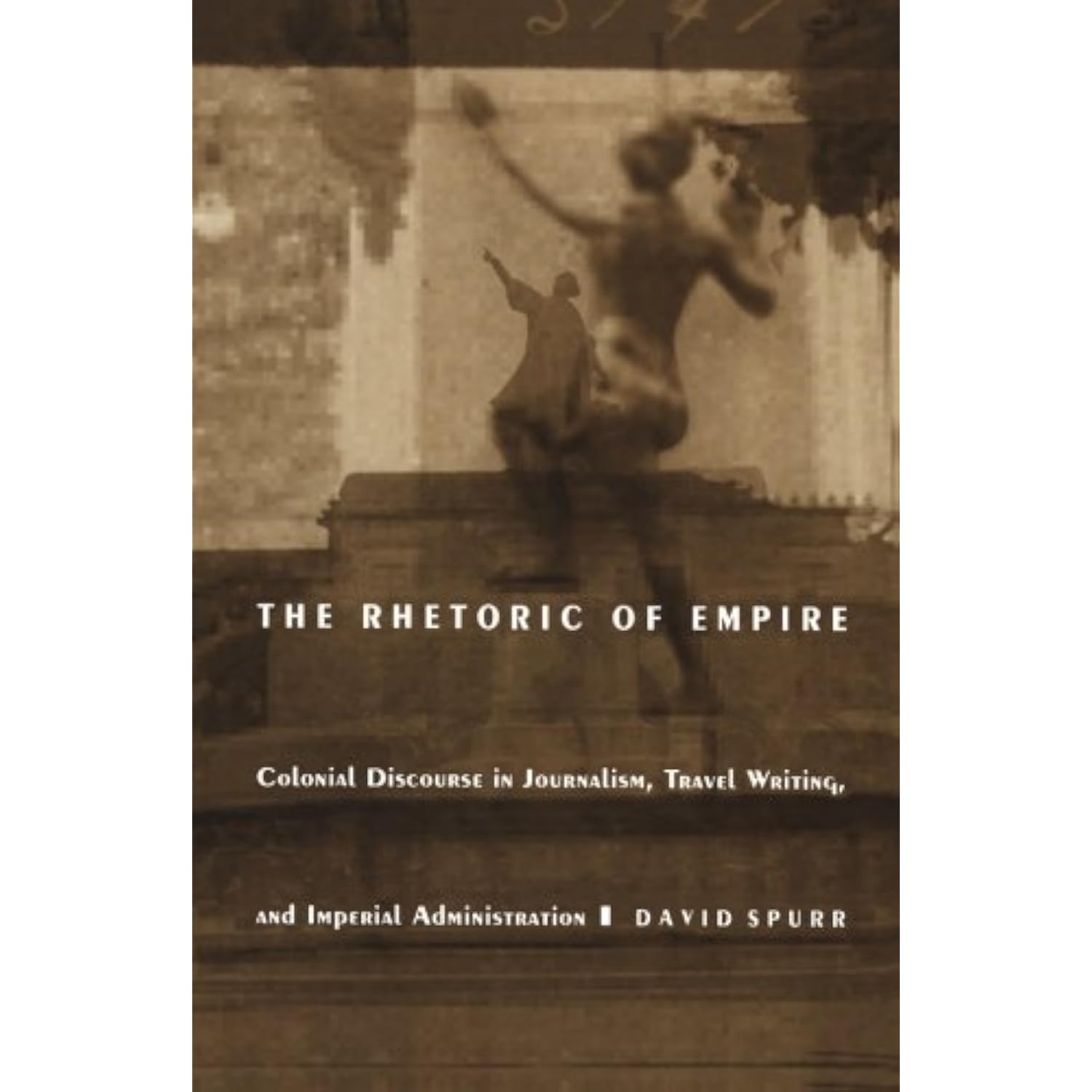
Rhetoric Empire Colonial Discourse Journalism Travel Writing Imperial Admin
IMPORTANT NOTES: PLEASE be aware that if there is just ONE photo in our listings, it means it is a GENERIC STOCK PHOTO.
C
SOME UNDERLINING IN PENCIL, AND OWNER'S ADDRESS LABEL ON COVER, OTHERWISE GOOD CONDITION.
The white man's burden, darkest Africa, the seduction of the primitive: such phrases were widespread in the language Western empires used to talk about their colonial enterprises. How this language itself served imperial purposes--and how it survives today in writing about the Third World--are the subject of David Spurr's book, a revealing account of the rhetorical strategies that have defined Western thinking about the non-Western world. Despite historical differences among British, French, and American versions of colonialism, their rhetoric had much in common. The Rhetoric of Empire identifies these shared features—images, figures of speech, and characteristic lines of argument—and explores them in a wide variety of sources. A former correspondent for the United Press International, the author is equally at home with journalism or critical theory, travel writing or official documents, and his discussion is remarkably comprehensive. Ranging from T. E. Lawrence and Isak Dineson to Hemingway and Naipaul, from Time and the New Yorker to the National Geographic and Le Monde, from journalists such as Didion and Sontag to colonial administrators such as Frederick Lugard and Albert Sarraut, this analysis suggests the degree to which certain rhetorical tactics penetrate the popular as well as official colonial and postcolonial discourse. Finally, Spurr considers the question: Can the language itself—and with it, Western forms of interpretation--be freed of the exercise of colonial power? This ambitious book is an answer of sorts. By exposing the rhetoric of empire, Spurr begins to loosen its hold over discourse about—and between—different cultures. Review " The Rhetoric of Empire is a richly eclectic, innovative study. It should appeal to a considerable cross-section of scholars and students and gain recognition as a significant intervention in colonial studies."—Rob Nixon, Columbia University "Spurr's ability to make connections between literature and its shadow discourse, journalism, and to show how the two work in tandem to reinforce the culture of colonialism, is really most impressive. The overall result of his approach is a broad perspective on the global problem of colonialism."—Christopher Miller, Yale University From the Back Cover "Spurr's ability to make connections between literature and its shadow discourse, journalism, and to show how the two work in tandem to reinforce the culture of colonialism, is really most impressive. The overall result of his approach is a broad perspective on the global problem of colonialism."--Christopher Miller, Yale University
Features
- Used Book in Good Condition
Details
- Product Dimensions: 6.0 x 0.57 x 9.25 inches
- Item Weight: 0.82 pounds
- Shipping Weight: 0.85 pounds
- Manufacturer: Duke University Press Books
We take our reputation seriously, we buy and sell online, so we understand the value of trust. If you are unsatisfied with your order, please contact us and we will work with you to resolve it to your satisfaction.
IMPORTANT NOTES:
see listing title / description / photos for author and title information
PLEASE be aware that if there is just ONE photo in our listings, it means it is a GENERIC STOCK PHOTO.
MOST of my books are either VERY GOOD or GOOD condition. Some are like new or new.
Books are shipped MEDIA MAIL RATE.